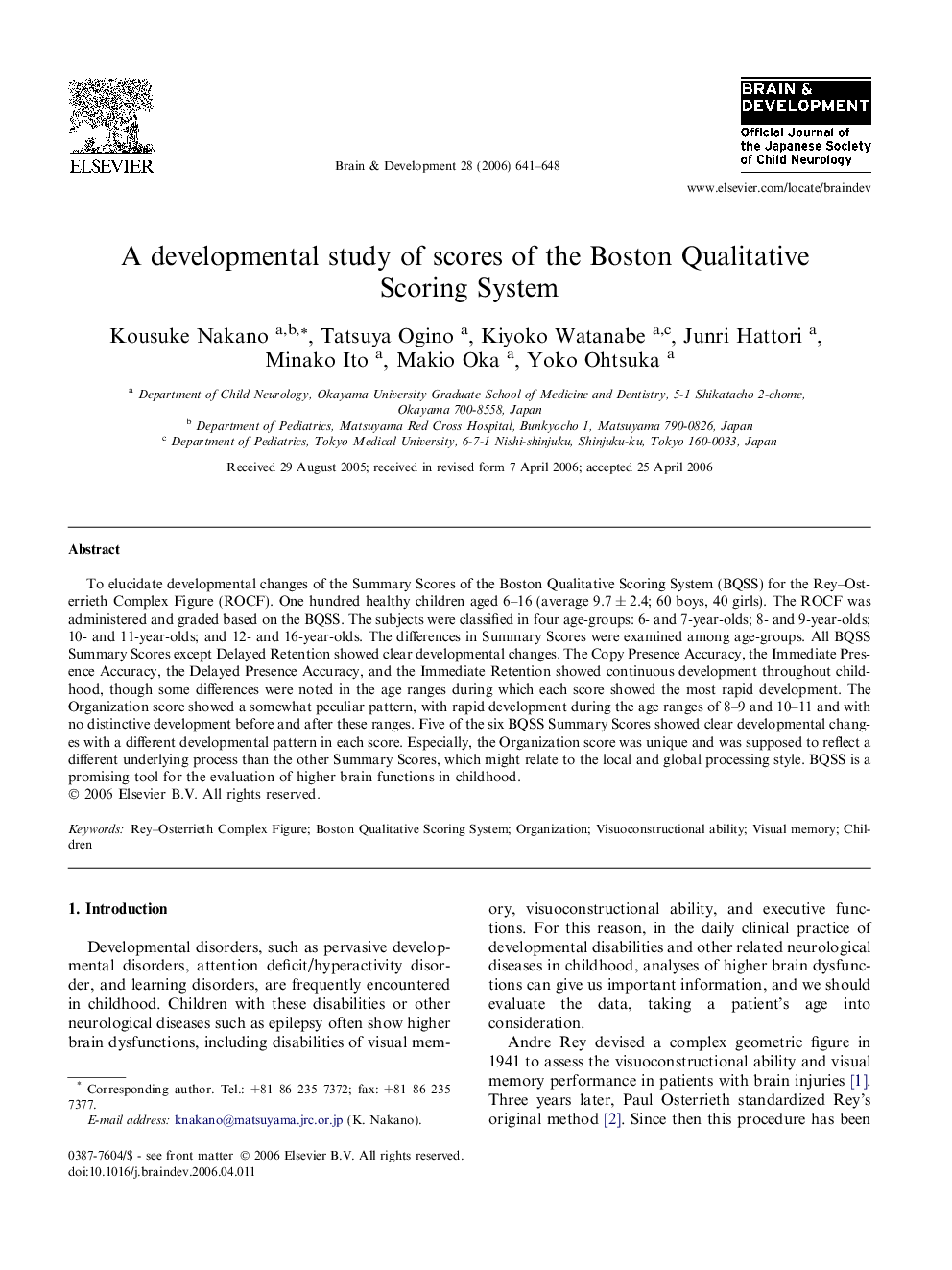| کد مقاله | کد نشریه | سال انتشار | مقاله انگلیسی | نسخه تمام متن |
|---|---|---|---|---|
| 3038583 | 1184477 | 2006 | 8 صفحه PDF | دانلود رایگان |

To elucidate developmental changes of the Summary Scores of the Boston Qualitative Scoring System (BQSS) for the Rey–Osterrieth Complex Figure (ROCF). One hundred healthy children aged 6–16 (average 9.7 ± 2.4; 60 boys, 40 girls). The ROCF was administered and graded based on the BQSS. The subjects were classified in four age-groups: 6- and 7-year-olds; 8- and 9-year-olds; 10- and 11-year-olds; and 12- and 16-year-olds. The differences in Summary Scores were examined among age-groups. All BQSS Summary Scores except Delayed Retention showed clear developmental changes. The Copy Presence Accuracy, the Immediate Presence Accuracy, the Delayed Presence Accuracy, and the Immediate Retention showed continuous development throughout childhood, though some differences were noted in the age ranges during which each score showed the most rapid development. The Organization score showed a somewhat peculiar pattern, with rapid development during the age ranges of 8–9 and 10–11 and with no distinctive development before and after these ranges. Five of the six BQSS Summary Scores showed clear developmental changes with a different developmental pattern in each score. Especially, the Organization score was unique and was supposed to reflect a different underlying process than the other Summary Scores, which might relate to the local and global processing style. BQSS is a promising tool for the evaluation of higher brain functions in childhood.
Journal: Brain and Development - Volume 28, Issue 10, November 2006, Pages 641–648